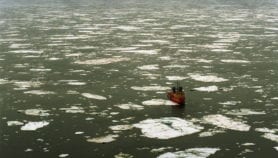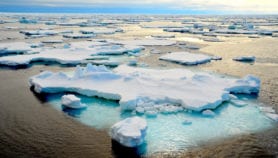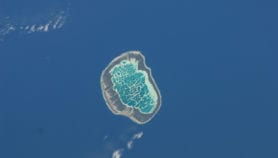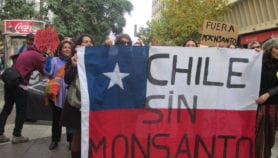By: Ruci Mafi Botei
Send to a friend
The details you provide on this page will not be used to send unsolicited email, and will not be sold to a 3rd party. See privacy policy.
[FIJI] Indo-Pacific nations stand to make millions of dollars from medical applications of resources from marine invertebrates such as sponges and soft corals, researchers say.
But they warn that better regulation of such resources is needed to ensure they are used sustainably.
Substances generated by some marine invertebrates have the potential to be used in drugs to treat diseases like cancer, and exploration for these resources is expected to rise in response to escalating demands for such drugs, said Miguel Costa Leal, biologist at the University of Aveiro in Portugal and lead author of a study in PLoS One (20 January).
"The global market for marine-derived drugs was around US$4.8 billion in 2011 and is forecast to reach US$8.6 billion by 2016," he told SciDev.Net.
"Worldwide, nations are generally aware of such interest. But adequate management guidelines addressing bioprospecting are still missing in most countries."
The study said that the Pacific Ocean accounts for most new marine natural products discovered over the past two decades – and for nearly two-thirds of all such products identified so far.
Leal said there is clear potential for marine invertebrates to contribute to the development of drugs that address a range of diseases such as cancers, microbial infections, inflammation, malaria and tuberculosis.
But he called for better regulations to govern bio-prospectors and marine systems, to ensure such resources are adequately protected.
A keen debate on the governance of marine resources is expected at the UN Conference on Sustainable Development (Rio+20) in Brazil in June, where oceans are a key theme.
The draft negotiating document for Rio+20 stresses the importance of "equitable sharing of marine and ocean resources" and calls for an urgent start on negotiating an agreement under the UN Convention on the Law of the Sea "that would address the conservation and sustainable use of marine biodiversity in areas beyond national jurisdiction".
In the Pacific, there are also calls for wealth from marine resources to be shared with indigenous communities.
"The chemical resources of the marine environment remain underdeveloped, in particular in the vast Pacific region," said Eric Clua, co-ordinator of the Coral Reef Initiatives for the Pacific at the Secretariat of the Pacific Community.
"Indigenous peoples’ traditional knowledge of plants and their medicinal uses has long been a source for modern medicine," Clua said, adding that they have "often seen little or no benefit from the commercialisation of medicines originating from their traditional knowledge".
Link to full study in PLoS ONE ![]() [925kB]
[925kB]
References
PLoS ONE doi:10.1371/journal.pone.0030580 (2012)
More on Bioprospecting
News
Combining cassava species could lead to better crops
[SAO PAULO] Combining tissues from different cassava species may lead to a new method for improving t ...16/10/12
News
Biodiversity data gaps ‘need bridging’ to meet global targets
[HYDERABAD] Global biodiversit ...11/10/12
News
Meeting puts socioeconomic impact on biosafety agenda
[HYDERABAD] An international treaty meeting on biosafety has recommended to include the socioeconomic ...09/10/12
Feature
Guide and glossary to CBD
The Convention on Biological Diversity (CBD) has spawned a series of agreements and technical ...07/10/12








